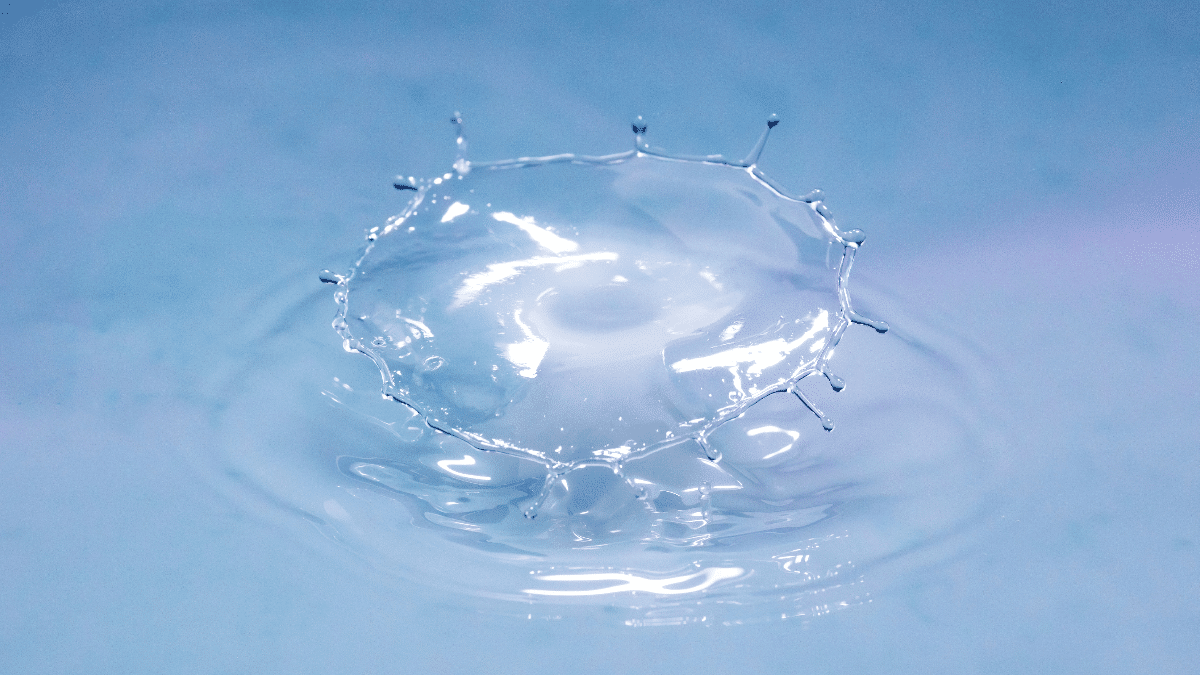Water—it’s the simplest, most affordable thing you can consume to stay healthy. But if you walk into any grocery store or browse online, you’ll find countless specialty waters that seemingly put tap water to shame.
One newcomer to the H2O aisle is oxygenated water, which has extra oxygen infused into it. Many brands that make oxygenated water claim it can boost exercise performance, improve your immune system, and even prevent hangovers.
Oxygenated water is part of the functional water market, which is valued at $4.2 billion. But does the evidence behind these benefits warrant the hype (and the price)? Or are you fine drinking from the faucet?
In this article, we explain how this oxygenated water is made, analyze the potential benefits, and see how it stacks up to other types of functional water.
What Is Oxygenated Water?
Oxygenated water is purified water that’s infused with extra oxygen during the bottling or canning process. It’s made by bubbling oxygen through the water or by using an oxygenation machine, which increases the water’s dissolved oxygen levels.
Oxygen water can have up to nine times more oxygen than plain bottled water. This is the basis behind the claims for its ability to boost your energy levels and improve athletic performance.
Also called “hydrogenated water,” some brands of oxygenated water are infused with ingredients like electrolytes, caffeine, and sweeteners.
At first glance, oxygenated water might sound a lot like sparkling water because of the extra air, but they’re not the same. The bubbles in sparkling water come from dissolved carbon dioxide, while the bubbles in oxygenated water come from dissolved oxygen. Accordingly, oxygenated water tends to be slightly less bubbly.
3 Potential Health Benefits of Oxygenated Water

Let’s take a closer look at a few common health claims behind oxygenated water—and whether there’s any scientific evidence to back them up.
1. Improves Endurance
A big selling point is that added oxygen in water can help you train harder, faster, and longer. The idea is that oxygenated water can increase the amount of oxygen in your blood, helping you feel more energized.
However, two studies have debunked these claims.
A randomized, double-blind crossover study of 11 athletes found no differences in VO₂ max (the maximum rate of oxygen your body can use during exercise) after drinking oxygenated water before exercise.
Another study of nine male cyclists showed that performance, hydration, and blood oxygenation were unaffected by oxygenated water. “Results of this study suggest that purified oxygenated water does not improve exercise performance in moderately active males,” the authors wrote.
2. Faster Recovery
Some oxygenated water brands are marketed as a post-workout recovery drinks. However, there’s only one study to support that selling point.
A study from 2017 involving 25 runners found that drinking oxygenated water during training significantly improved their “lactate clearance.”
During high-intensity exercise, your body produces lactate (AKA lactic acid) as a byproduct of energy production. As lactate accumulates, your muscles get tired. Therefore, clearing lactate becomes important during recovery after exercise.
More research is needed to know for sure whether oxygenated water is an effective recovery drink.
3. Enhances Alcohol Metabolism
Large amounts of oxygen are required to metabolize alcohol in your liver. Therefore, many people believe drinking oxygenated water can help you process alcohol more easily and avoid hangovers.
There’s only been one study to examine this claim, but the results were surprisingly promising. Researchers evaluated 15 healthy men and found that dissolved oxygen drinks accelerated the decrease in blood-alcohol content after drinking large amounts of alcohol.
“We postulate that highly oxygenated water augments the effect of oxygen in the alcoholic beverage in alcohol elimination,” the authors wrote. “Therefore, it is necessary to investigate the supportive effect of ingesting additional oxygenated water after heavy drinking.”
Is Oxygenated Water Better Than Regular Water?
As it stands today, the consensus in the scientific community is that oxygenated water is not “healthier” or better for you than regular water. Oxygen water will help you meet your daily hydration needs. But beyond that, the claims are limited.
“Oxygenated water fails both quantitative analysis and practical physiological tests of exercise performance and recovery,” notes the British Journal of Sports Medicine.
One big problem is that most of the added oxygen escapes into the air as soon as you open the bottle or can. The other issue is that oxygen doesn’t really affect the human body once it enters your digestive system. Only a trace of the oxygen in the water will pass through your intestines into your bloodstream, which is already saturated with oxygen.
Dr. Joe Schwarcz, Ph.D. from McGill University points out that a single breath of air contains more oxygen than an entire liter of oxygenated water. “A sampling of a variety of oxygenated waters reveals an average of about 10 mL oxygen per 100 mL of water. Clearly, even if the oxygen from the water were absorbed, it would be less than taking an extra breath.”
Hyperoxygenated water has, however, been shown to produce a powerful placebo effect. A 2006 ACE Fitness study found that athletes improved their 5K run times by an average of 83 seconds when told they were drinking “super-oxygenated” water.
Are There Downsides to Drinking Oxygenated Water?
There are no known health risks associated with drinking oxygenated water. Most of the time, the ingredients are simply purified or distilled water. That said, you should always check the label on beverages you buy, since they may contain added ingredients.
The only downside with oxygenated water is that you could be overpaying for something that has the same net effect on your body as plain old H2O.
